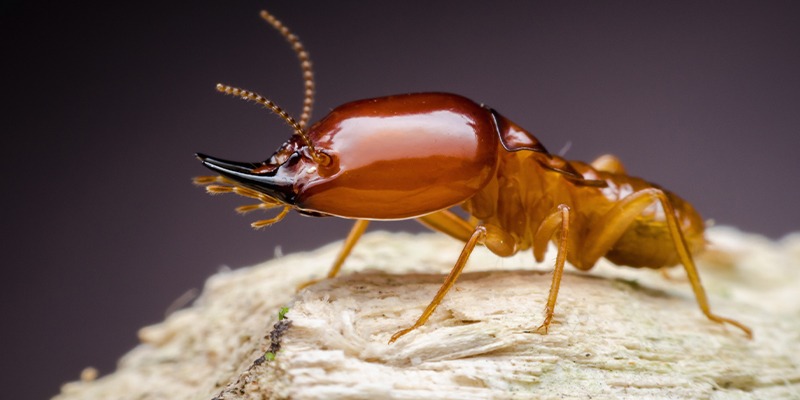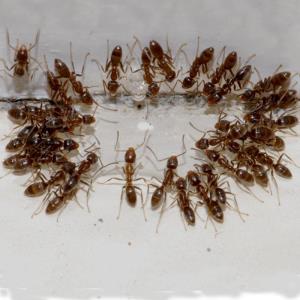Professional Termite Control Services: Guard Your Home from Termite Damage
Professional Termite Control Services: Guard Your Home from Termite Damage
Blog Article
Ecological Effect of Pest Control: Balancing Efficiency With Sustainability
The environmental effect of parasite control is a critical problem that needs a fragile balance in between accomplishing performance in handling pests and making certain sustainability of our ecological communities. As we make every effort to shield our plants, homes, and wellness from the dangers postured by parasites, the techniques we employ can accidentally hurt the atmosphere. From the use of hazardous chemicals that permeate right into our soil and water to the unintended consequences on non-target species, the consequences of conventional insect control methods are far-reaching. There are emerging techniques that use hope for an extra sustainable approach to pest management. These services not only objective to deal with the immediate pest troubles but likewise take into consideration the lasting health and wellness of our earth.
Damaging Chemicals in Parasite Control
The application of harmful chemicals in bug control presents substantial environmental and health and wellness dangers that call for careful consideration and mitigation approaches. Herbicides, chemicals, and pesticides are generally used to eradicate bugs, yet their extensive application can lead to unexpected effects. These chemicals can pollute soil, water sources, and the air, affecting not only the targeted bugs but likewise useful pests, wildlife, and people.

To resolve these risks, integrated insect administration (IPM) strategies are being advertised as a more sustainable option. IPM involves a mix of techniques such as organic control, environment control, and the targeted use of chemicals as a last resource (ant control lewisville nc). By embracing an alternative approach to pest control, we can decrease the environmental and health influences linked with harmful chemicals while efficiently handling pest populations
Influence On Non-Target Variety
Considering the unintended consequences of insect control techniques, the influence on non-target species is an essential element that needs detailed assessment. While bug control procedures intend to target certain parasites, various other microorganisms in the ecological community might be accidentally affected. Non-target varieties, consisting of useful pests, birds, mammals, and also plants, can suffer indirect or straight harm from chemical applications or biological control approaches.
Pesticides made to fight a specific insect bug may harm pollinators like bees or all-natural predators such as ladybugs. Biological control agents, if not species-specific, can posture dangers to unintentional targets, interfering with the environmental balance.
To minimize the influence on non-target varieties, incorporated pest management (IPM) strategies that highlight an alternative method to pest control are recommended. These techniques focus on making use of environmentally pleasant practices, lessening damage to useful microorganisms while efficiently taking care of pest populaces. Performing detailed risk analyses and keeping track of the end results of insect control efforts are important action in securing non-target types and advertising total community health.
Dirt and Water Contamination
Unexpected environmental repercussions of bug control methods expand beyond impacting non-target varieties, with significant implications for dirt and water contamination. Chemicals, herbicides, and chemical plant foods used in bug control can seep into the dirt and contaminate groundwater, positioning a threat to both terrestrial and water ecosystems. Soil contamination can interfere with the equilibrium of microbes vital for vitamins and mineral biking and plant growth, causing lowered dirt fertility and performance. These chemicals can linger in the environment for extended periods, gathering in the dirt and possibly going into the food chain.
Water contamination is an additional vital issue associated with bug control practices. Runoff from farming fields treated with chemicals can lug these chemicals into neighboring water bodies, impacting marine organisms and water quality. Contaminants in water resources can have far-ranging repercussions, affecting not only water life however additionally human wellness via the consumption of infected water or aquatic organisms. To alleviate dirt and water contamination from bug control activities, incorporated parasite administration strategies that prioritize sustainability and lessen chemical inputs are critical.
Air Air Pollution From Pesticide Use
Exposure to air-borne pesticides throughout agricultural applications postures a considerable concern for air pollution control procedures. Furthermore, chemical drift, where pesticides are carried by the wind to unexpected areas, can lead to the contamination of nearby ecological communities and water bodies.

Strategies for Lasting Bug Control
In the world of farming practices, implementing sustainable insect control strategies is paramount for keeping eco-friendly balance and safeguarding crop yields. Lasting bug control stresses the use of eco pleasant approaches to handle pest populaces successfully while lessening injury to non-target microorganisms and communities. Integrated Insect Management (IPM) is a commonly embraced approach that integrates organic, cultural, physical, and chemical control approaches to achieve long-lasting pest administration services.
Crop turning and diversification are also effective strategies to disrupt pest life cycles and develop much less favorable problems for pests to thrive. Eventually, by integrating these sustainable pest control methods, farmers can accomplish a balance between pest monitoring efficiency and ecological stewardship.
Final Thought
To conclude, the ecological effect of parasite control techniques must be thoroughly thought about to stabilize effectiveness with sustainability. Hazardous chemicals made use of in pest control can bring about dirt and water contamination, air contamination, and injury non-target species - termite control services. It is important to implement lasting pest control techniques to decrease these unfavorable effects on the setting and promote a much healthier ecosystem for future generations
By embracing a holistic approach to pest control, we can decrease the ecological and wellness effects linked with unsafe chemicals while successfully handling pest populaces.

To reduce the air contamination triggered by chemical usage, it is crucial to embrace integrated insect management techniques that prioritize the usage of non-chemical parasite control methods, such as plant turning, natural predators, and immune crop ranges. Sustainable pest control stresses the usage of ecologically friendly approaches to handle insect populaces successfully while decreasing damage to non-target microorganisms and environments. Integrated Parasite Management (IPM) is a widely adopted strategy that integrates organic, cultural, physical, and chemical control techniques to accomplish long-lasting insect monitoring solutions.
Report this page